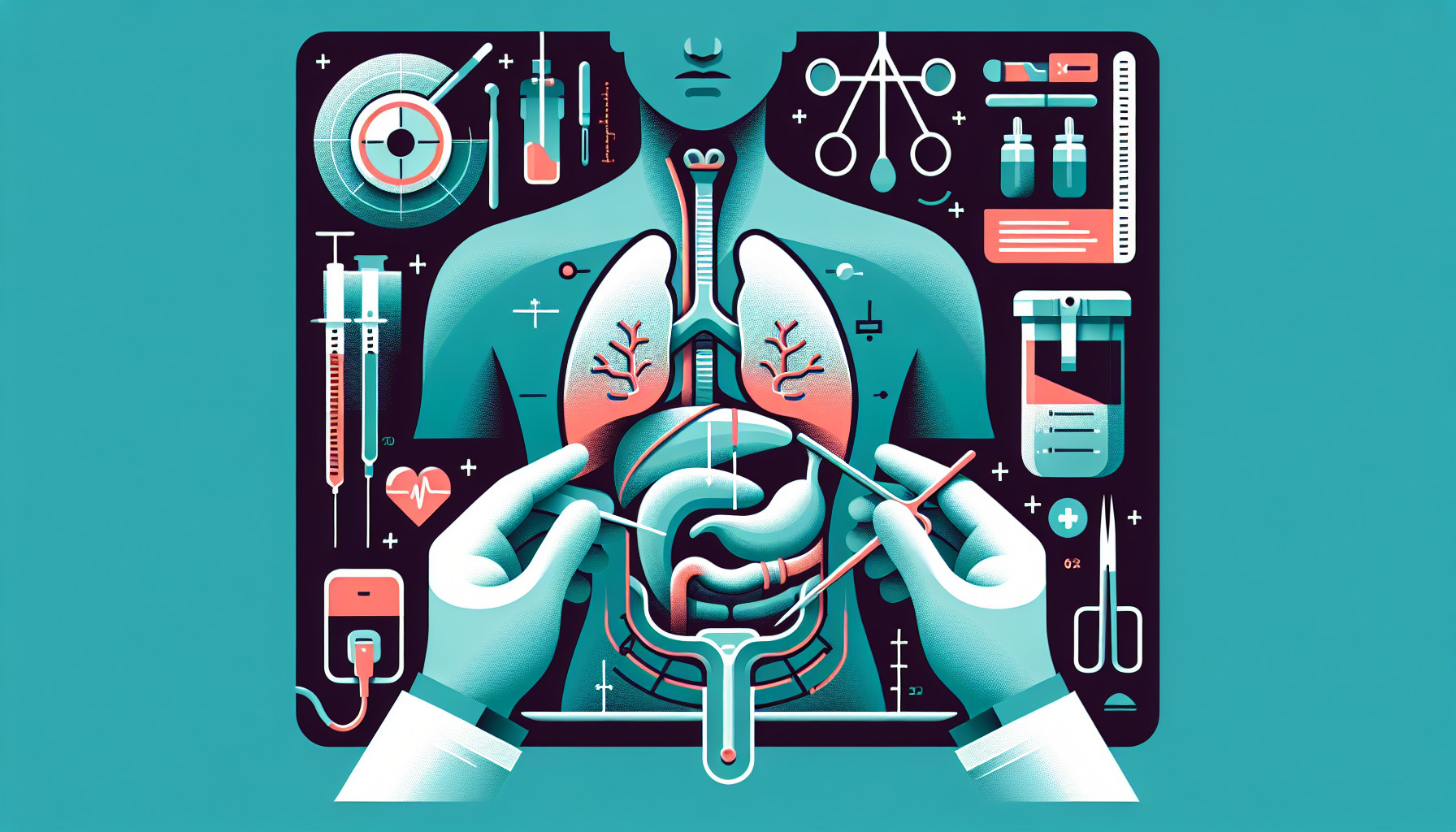Our Summary
This research paper discusses the option of a combined kidney and pancreas transplant for patients who have type 1 diabetes and severe kidney disease. After such a transplant, fertility is often quickly restored, allowing both men and women to have children. However, pregnancies after such a procedure are at a higher risk for complications due to the required medications, existing health conditions, and the effects of the transplant surgery. Potential issues include high blood pressure, miscarriages, diabetes, infections, rejection of the transplanted organ, premature birth, and low birth weight.
Because some medications used to suppress the immune system (necessary to prevent organ rejection) can’t be safely used during pregnancy, it’s crucial to review and potentially adjust these treatments before trying to conceive. It’s also important to educate women and their partners about the potential risks to both the mother and the baby, as well as the transplanted organs, and the benefits of planning the pregnancy carefully.
Pregnancies after a kidney and pancreas transplant should be managed by a team of healthcare professionals, including a transplant doctor, a hormone specialist, a kidney specialist, an obstetrician, and a neonatologist.
Lastly, the authors stress the importance of continuing to gather data on pregnancies following these transplants, in order to increase understanding and develop evidence-based guidelines for women considering pregnancy after a pancreas-kidney transplant.
FAQs
- What are the potential complications after a combined kidney and pancreas transplant?
- Why is it crucial to review and potentially adjust immune suppressing medications before conceiving after a transplant?
- What healthcare professionals should be involved in managing pregnancies after a kidney and pancreas transplant?
Doctor’s Tip
Always consult with your transplant team before considering pregnancy after a pancreas transplant. They can help you navigate the risks and provide guidance on how to best prepare for a healthy pregnancy.
Suitable For
Patients who are typically recommended for a pancreas transplant are those with type 1 diabetes who are experiencing severe complications such as kidney disease. In particular, patients who would benefit from a combined kidney and pancreas transplant are often considered for this procedure. Additionally, patients who have had a pancreas transplant and are considering pregnancy should be carefully evaluated and monitored by a team of healthcare professionals to ensure the best possible outcomes for both the mother and the baby.
Timeline
- Before pancreas transplant:
- Patient is diagnosed with type 1 diabetes and severe kidney disease.
- Patient undergoes evaluation for a combined kidney and pancreas transplant.
- Patient is placed on the transplant waiting list.
- Patient receives a suitable donor organ for transplant.
- After pancreas transplant:
- Patient undergoes surgery to receive the pancreas transplant.
- Patient begins taking immunosuppressant medications to prevent organ rejection.
- Patient goes through a period of recovery and monitoring for any complications.
- Patient’s fertility is often quickly restored after the transplant.
- Patient and their healthcare team discuss the option of pregnancy and potential risks.
- Patient may need to adjust medications and plan the pregnancy carefully.
- Patient receives specialized care during pregnancy, including monitoring by a team of healthcare professionals.
- Potential risks during pregnancy include high blood pressure, miscarriages, infections, rejection of the transplanted organ, premature birth, and low birth weight.
- Continued gathering of data on pregnancies following pancreas-kidney transplants to develop evidence-based guidelines for women considering pregnancy after the transplant.
What to Ask Your Doctor
- What are the potential risks and complications of becoming pregnant after a pancreas transplant?
- How might pregnancy affect the function of the transplanted pancreas and kidney?
- Are there specific medications that need to be adjusted or avoided during pregnancy?
- What kind of monitoring and care will be needed during pregnancy to ensure the health of both the mother and the baby?
- What are the chances of successful pregnancy and healthy birth outcomes after a pancreas transplant?
- How soon after the transplant is it safe to consider becoming pregnant?
- Are there any lifestyle changes or precautions that should be taken before and during pregnancy?
- Will I need to see any additional specialists or healthcare providers during my pregnancy?
- What are the potential long-term implications for both the mother and the baby after a pregnancy following a pancreas transplant?
- Are there any support resources or organizations that can provide additional information and guidance on pregnancy after a pancreas transplant?
Reference
Authors: Caretto A, Caldara R, Castiglioni MT, Scavini M, Secchi A. Journal: J Nephrol. 2020 Oct;33(5):1009-1018. doi: 10.1007/s40620-020-00860-8. Epub 2020 Sep 21. PMID: 32959341
